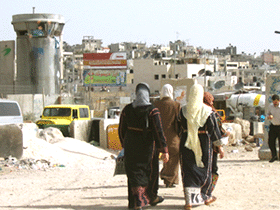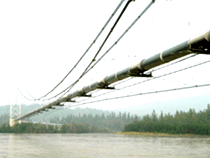
Archives


Movement Control: Navigating the Checkpoints of Palestine

Powering Alaska After The Oil Runs Out

The Wholesale Looting of the Gulf Coast
If you are more interested in and disgusted by rumors of civilian "troublemakers" on the streets of New Orleans and other Gulf Coastal communities than in the massive failings of the United States government before, during and since this tragedy began, consider a career in journalism.
The real criminals are sitting in positions of authority: the president, the director of FEMA, and the hundreds of congresspersons cutting their excessive vacations short to pat one another on the back as they pass emergency funding provisions for the hardly-operative relief efforts centered in Louisiana and Mississippi.

Women Lead the Way

Radical Folk Music: An Interview with David Rovics
Having just started a deadening temp job alphabetizing books that students had returned at the semester’s end, there was something comforting about hearing the triumphant chorus: “When all the minimum wage workers went on strike!” bouncing off the University of Wisconsin’s buildings. It was early May and rabble-rousing folk musician David Rovics was in Madison to celebrate the centennial of the Industrial Workers of the World (IWW). I had first heard him play “Minimum Wage Strike” six years before at a student activism conference in Boston. I’ve been drawn to David’s music ever since. He continues to leave his own unique mark on the radical folk tradition. I had the chance to sit down with him on a lovely spring day inside the Orton Park gazebo where we discussed his passion for playing music for the revolution as an antidote to crippling wage slavery.
